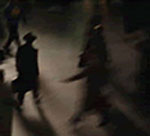RIA Novosti: Quarter of Russia’s Budget to Become Classified by 2016

(RIA Novosti – MOSCOW, October 14, 2013) Almost one-quarter of government spending in Russia is to become classified within the next three years, according to findings by a Moscow research institute that will raise concerns of decreasing economic transparency in a country already plagued by corruption.
Vedomosti business daily said in a report Monday, citing a study by the Gaidar Institute for Economic Policy, that details of 24.8 percent of federal spending will become classified by 2016. The institute estimates that almost 16.7 percent of the state budget will be classified in 2014, and that the figure will rise to 21.4 percent the following year.
Defense spending accounts for the increase in secrecy, the report said, with 59 percent of military expenses to become classified in 2014, up from 52 percent this year.
By comparison, classified military spending in the United States was estimated by Transparency International to stand at 8 percent of the total defense budget in 2013.
Based on total budget figures previously announced by the Finance Ministry, classified spending for the next three years will stand at a combined 9.7 trillion rubles ($300 billion).
Classified budget expenses averaged 11.2 percent of the total state budget in 2005-2012, Vedomosti said.
The Russian government has undertaken a major drive to revamp the country’s military-industrial complex, which it is estimated to require 24 trillion rubles ($750 billion) worth of investment by 2020.
The state budget draft for 2014-2016 includes a 5-percent budget reduction compared to the previous three-year budget, but defense expenses are exempt from the cut.
The government budget, which is pending review in the State Duma, was criticized Monday by the Audit Chamber for its forecast of annual economic growth of 3.3 percent.
The watchdog said the forecast ignores risks to fixed investment into the Russian economy. It also says revenue from oil and gas, value-added and corporate taxes, privatization of state enterprises and domestic borrowing may all be lower than expected in the draft.
Domestic borrowing in 2012 stood at less than 70 percent of the forecasted volume, and privatization revenue at less than 75 percent, the Audit Chamber said.
